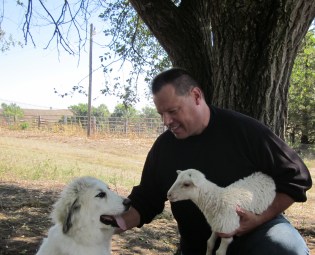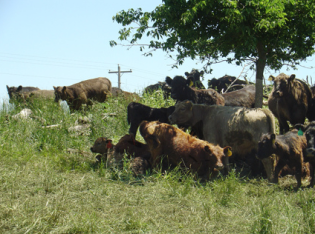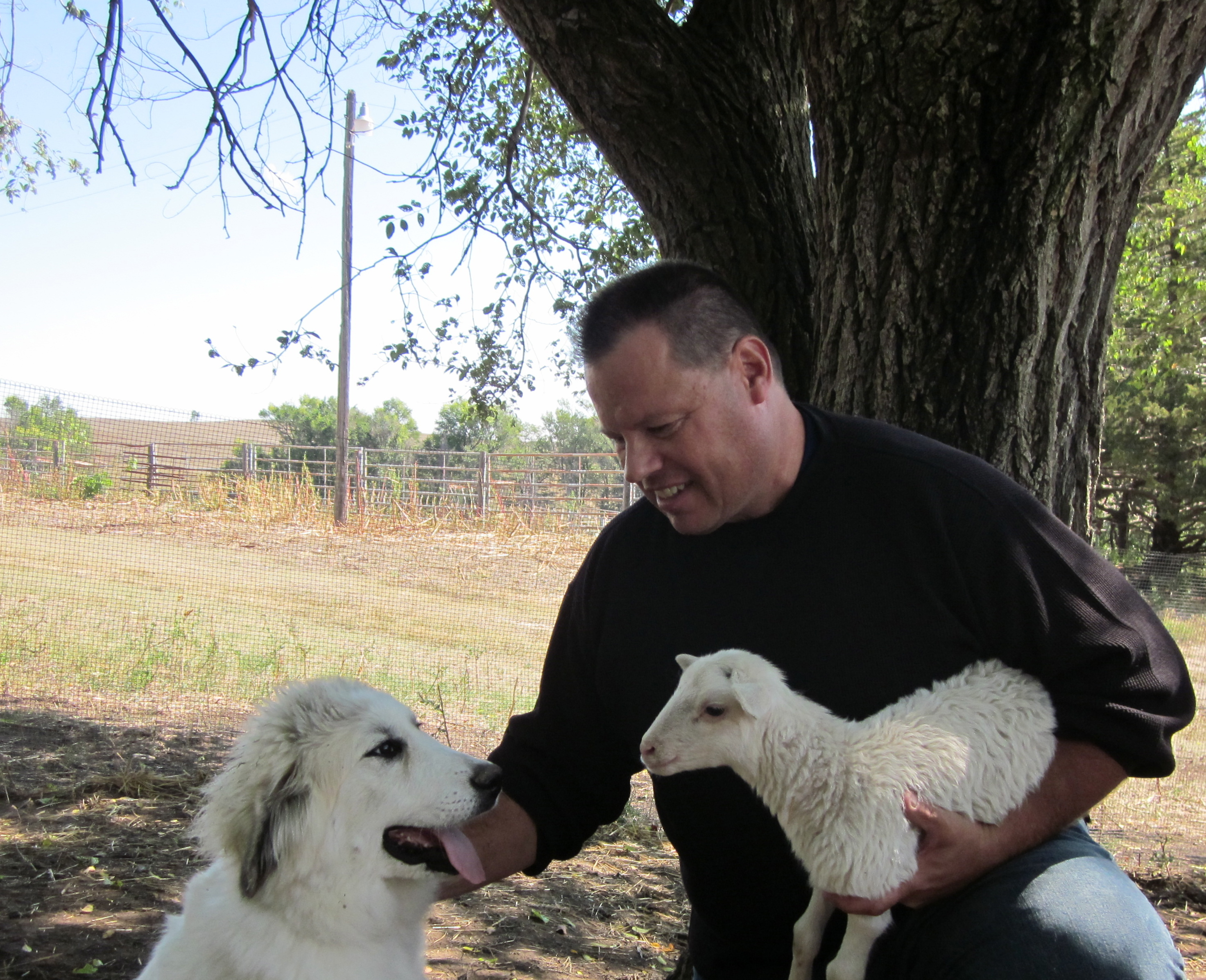 Kevin Fulton drives a truck, wears Carhartts, and has never owned a pair of Birkenstocks. As he puts it: “I don’t look like a bunny hugger.” And that’s what makes this rancher’s recent efforts to change the face of animal agriculture in Nebraska all the more surprising.
Kevin Fulton drives a truck, wears Carhartts, and has never owned a pair of Birkenstocks. As he puts it: “I don’t look like a bunny hugger.” And that’s what makes this rancher’s recent efforts to change the face of animal agriculture in Nebraska all the more surprising.
Fulton had been raising a variety of animals on pasture and farming organic grains for nearly a decade when he decided it just wasn’t enough. The rancher was used to being the odd man out in Central Nebraska, or “CAFO country” as he calls it. But for the most part, he’d kept his beliefs to himself.
After all, converting the 2,800 acres to meet organic standard and practicing what’s called holistic management with grass-fed cattle, sheep, and goats, as well as pastured poultry had kept Fulton pretty busy. But this son of a veterinarian still found himself considering the animals who weren’t so lucky.
“I was very sensitive to the fact that there are millions of animals in situations where they can’t even turn around,” he says. “I think that’s a disgrace to the industry, and it hasn’t helped us make a better food product.”
In the interest of building a bridge between the animal rights movement and the conventional agriculture community — in which some people care deeply about animals but feel stuck in a tightly consolidated system that requires that they resort to concentrated animal feeding operations (CAFOs) — he figured he’d start speaking up for livestock raised inhumanely.
Then, around four years ago, Fulton became a member of the Humane Society of the United States (HSUS). “I thought it’d give them more credibility to have a farmer involved, so they wouldn’t just be labeled as the animals rights fanatics, or abolitionists,” he recalls. And in the process he ran the risk of aligning himself with a group most medium- and large-scale ranchers won’t have anything to do with.
“It was already bad enough being an organic farmer — people [in Nebraska] think you’re strange. But when you start aligning with an animal activist organization that may oppose certain practices in the livestock industry, you become a real target.”
Not that too many people want to mess with Fulton: In addition to a strong ethical background, he’s literally a very strong guy. In the intervening years between growing up on the farm and returning two decades ago to take over managing it, he competed in hundreds of weightlifting and strongman competitions. (He was only the second American to lift a pair of giant 400-pound rocks in Scotland called the Dinnie Stones, and he did it at age 41).
Fulton doesn’t come across as bully, mind you. But he is using his place in the world to advocate for those with less power. And, like most Nebraskans, he also believes in being civil, and in hearing his opponents out.

Fulton's ranch. (Photo by Center for Rural Affairs.)
Take the town hall meeting he co-hosted in Nebraska with Wayne Pacelle, president and CEO of the HSUS, in late 2010. The idea, says Fulton, was to “get together some leaders in agriculture and see if we could sit at the table and work together to move into the 21st century.” Several hundred people turned out, including representatives of the ultra-conservative Farm Bureau. And on the surface, the meeting looked like a contentious disaster.
“All these people said, ‘we don’t have any problems in the state of Nebraska.’ They didn’t want to have anything to do with the Humane Society,” recalls Fulton. But he’d listened intently to what everyone at the table had to say and, soon enough, he and HSUS reps began meeting with farmer groups behind the scenes.
Then, last October, Fulton and the HSUS brokered a monumental agreement with the Nebraska Farmers Union, an organization that works with both conventional and sustainable family farms in the state. Together they formed a Nebraska agriculture advisory council for the HSUS, which Fulton now chairs. The HSUS agreed not to pursue livestock-focused animal protection ballot initiatives in Nebraska (HSUS is known for funding ballot initiatives and they’ve won 30 out of the 44 they’ve proposed since 1990). Instead, they’ve agreed to work with farmers to build a market for locally raised humane meat in the state.
In an HSUS press release, John Hansen, president of the Nebraska Farmers Union, said: “This alternative approach allows both our organizations to focus on working together in a positive manner to the benefit of both food growers and food consumers.”
The negotiation was no doubt shaped by the fact that Fulton could point to the 51,000 HSUS members in Nebraska. “They want humanely raised products,” says Fulton. “We’ve got a huge market we can service if we just develop those markets.”
Fulton hopes this type of agreement to nurture the demand for locally raised humane meat and dairy can happen in other states, like Colorado, where HSUS is currently in talks with farming organizations and where HSUS has some 200,000 members.
“It’s a way to keep young farmers on the farm, where they can raise a product out on the land and sell it into local markets and get a premium,” says Fulton. That way, he adds, “they don’t have to slave to raise pigs for some large company, or raise chickens for Tyson or Perdue. They can be independent, the way they should be.”



